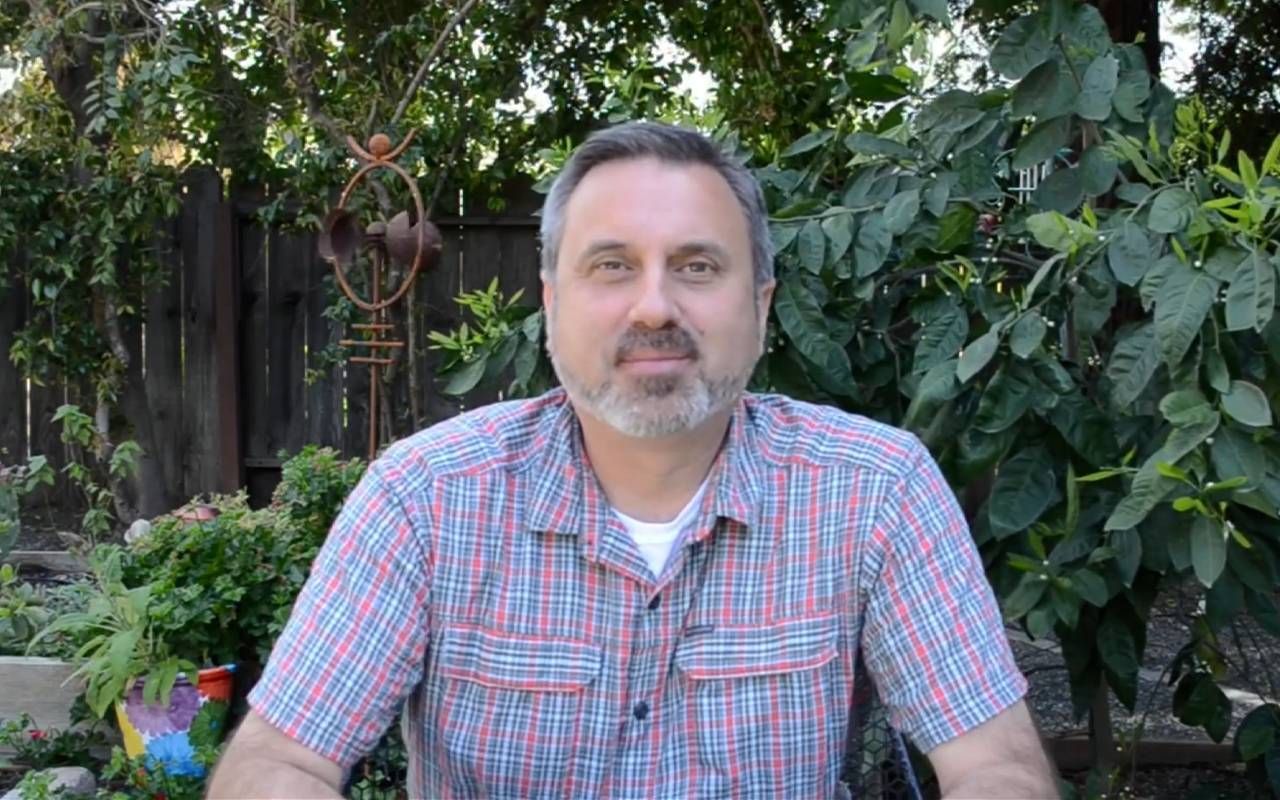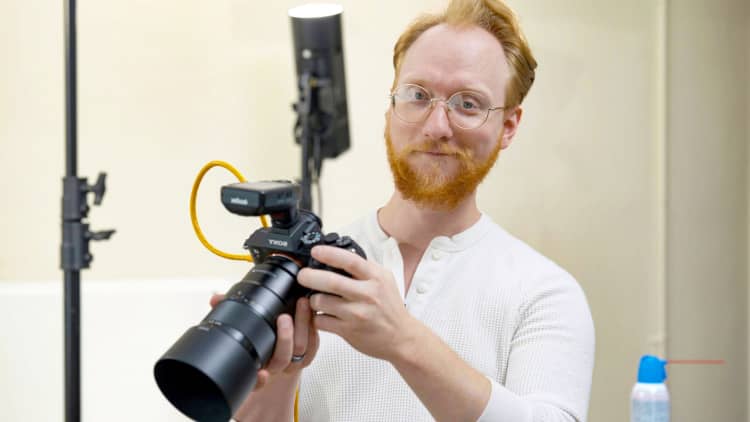
A Mindful Military, During and After Service
Beekeeping, martial arts and ancient Chinese philosophy have a common thread that can benefit active military and veterans
On a Sunday afternoon that featured bright sunshine and a gentle breeze, Jason Jurado led a walking meditation session along the sedge-lined Putah Creek near Winters, California. The three people who followed him enjoyed a half hour of silence as they focused on the trail and its fauna and wildlife.
Jason Jurado, owner of One Path Coaching | Credit: One Path Coaching
“Meditation has been shown to increase mental performance and clarity under high stress situations,” Jurado explained. “It has been used for thousands of years by the warrior class to instill a keen mind and a fearless heart.”
Jurado, 52, is a retired Marine. He first became aware of mindfulness as a kid interested in martial arts. He augmented his understanding of the practice while on duty in Japan.
Learning from a Zen Monk
“I knew a sergeant that taught Tae Kwon Do,” Jurado said. “He knew I was into martial arts so he invited me to join them. He was able to bring in a Zen monk to teach meditation.”
“Meditation has been shown to increase mental performance and clarity under high stress situations.”
Jurado now shares his knowledge with clients in his practice, One Path Coaching, which includes anxiety relief and mind-body healing.
A connection between mindfulness and military leadership can be traced to the fifth century BC. Several passages of the Tao te Ching, an ancient collection of meditations, address the importance of calm and focus when dealing with one’s opponent.
It makes sense. A soldier who can eliminate mental distractions is more focused on his surroundings and better equipped to disarm his enemy.
Britain Embraces Mindfulness
The United Kingdom sees the benefits. The British Army was so pleased with results of its Mindfulness program that it shared the content with the Royal Navy and Royal Air Force. More recently, the army made its eight-week course available to the public.
In the United States, mindfulness is a part of martial arts training within the military, as Jurado experienced. It is also a crucial part of training for Navy special forces, as detailed in Mark Divine’s book, “The Way of the SEAL.” On his website, Divine, 60, describes mindfulness as “techniques to train your mind for mental toughness, emotional resilience and uncanny intuition.”
Elite military groups have access to the training, but there is some hesitancy to teach mindfulness across ranks. Research conducted by the RAND Army Research Division, sponsored by the U.S. Army and published by the RAND Corporation, found a shortcoming in training methods.
“Although studies have suggested that mindfulness-based interventions might be effective in enhancing military readiness and resilience, this has not been rigorously evaluated,” according to the study summary. “More research is needed to identify best practices for implementing mindfulness programs in the military.”
“Mindfulness helps you to focus on the present, rather than focusing on the past.”
The study highlighted a non-combat advantage: “Mindfulness programs reduce stress and may reduce parental stress, which could benefit Army families.”
Mindfulness and meditation are often mentioned together, but there is a difference.
The British Army website offers a definition: “Put very simply, mindfulness helps you to focus on the present, rather than focusing on the past. It enables you to have mind and body in the same place, at the same time, which helps you become calm and see what is happening around you with greater clarity.
“A specialized skill in mental awareness, attention and acceptance, and associated with many health benefits, mindfulness can help with self-regulation and difficulty managing emotions and can help to improve concentration.”
Meditation and Mindfulness
Meditation is a tool to achieve mindfulness. It is a technique that allows a person to become mindful. It often involves focusing on a word or an object until the mind is empty of other thoughts. Meditation has roots in contemplative spiritual practices, including Christianity and Buddhism, and is also popular in secular circles.
“Be still and, like a glass of muddy water, the mud will settle, the water will become clear, and sunlight will shine through.”
“All share the same common thread,” Dave Drake, 60, Executive Director of Veterans PATH explained. “Be still and, like a glass of muddy water, the mud will settle, the water will become clear, and sunlight will shine through. You don’t do it, it does you.” Veterans PATH is based in Colorado Springs, Colorado, and offers online meditation events.
Walking meditation, the style Jurado led along the creek trail, is one of many styles of meditation. The Cleveland Clinic website cites several other techniques, including those that are body-centered, emotionally-centered, mantra-based and visually-based.
The Clinic also offers the following medical perspective on the benefits of meditation.
“In general, people who meditate are more likely to see the following benefits:
- “Decreased symptoms of anxiety, depression or post-traumatic stress disorder (PTSD).”
- “Improved ability to think, concentrate and solve problems.”
- “Better ability to adapt to and overcome emotional problems.”
“Because mental health has a strong impact on the health of your body, those benefits also often bring improvements in how well you sleep, high blood pressure and heart function, and much more.”
Zen and the Art of Beekeeping
Mindfulness and meditation can be especially useful to military veterans.
One type of mindful healing comes through beekeeping. Pollinators provide discharged military personnel a source of clarity and focus, and they are a key part of veterans’ programs.
Matis Stebbins started Beekeeping for Veterans, a registered non-profit organization.
“The program was started at a drug rehabilitation center in Toronto,” he said. “Once we combined beekeeping and mindfulness meditation practices, veterans started to respond that they felt calmer and more in control of their emotions.”
“Once we combined beekeeping and mindfulness meditation practices, veterans started to respond that they felt calmer and more in control of their emotions.”
Stebbins explained the important life lessons connected with hive work, including body awareness, letting go and acceptance. “When a person beekeeps, they need to be calm, mindful of their movements,” he explained.
“Bees are like emotional mirrors. They will pick up on the beekeeper’s emotions. If a beekeeper is feeling stressed or angered, there is a good chance the bees will pick up on this and possibly sting the beekeeper,” he continued. “The opposite can be true as well. When one is calm and in the zone, bees won’t notice that you are in their territory, in their hive.”
Several organizations across the U.S. offer beekeeping as therapy for veterans. The Department of Veterans Affairs has hives at several of its medical centers. Social and mental health advantages of beekeeping have been touted in articles on Military.com and in Veterans Administration publications, including its Journal of Rehabilitation Research and Development.
Dave Drake, of Veterans PATH, pointed out a subtle connection of mindfulness and faith. “Is Veteran’s PATH faith-based? Not by any definition in popular nomenclature. But do we have faith? Hell, yes. Our faith rests on this principle of universal validity: Silence the mind, the soul knows how to heal itself.”
Clear Out the Clutter
At Putah Creek, Jason Jurado and his group silenced their minds to focus on their surroundings. At the end of their walking meditation, they discussed the vivid colors of flowers and the sparkle of sunlight on the rippling water. They commented on the sounds of birds and the texture of mud.
“Clearing out the clutter,” Jurado said. “That is what meditation does. Finding time to be in silence is a great way to calm your thoughts, your nervous system and in a way, your life. If you didn’t have these tools prior to or during your service, then today is a great time to learn them and get the benefits of this practice.”
 Donna Apidone writes and produces segments for America’s Heartland on PBS affiliates nationwide. She received a 2023 Artistic License Award from California Lawyers for the Arts. She hosted Morning Edition on CapRadio in Sacramento, California, for more than 20 years. Apidone’s interviews with authors/influencers are at DonnaApidone.com. She is the author of “Drive-Time Meditations” and “TransForMission.” Read More
Donna Apidone writes and produces segments for America’s Heartland on PBS affiliates nationwide. She received a 2023 Artistic License Award from California Lawyers for the Arts. She hosted Morning Edition on CapRadio in Sacramento, California, for more than 20 years. Apidone’s interviews with authors/influencers are at DonnaApidone.com. She is the author of “Drive-Time Meditations” and “TransForMission.” Read More
Source link







